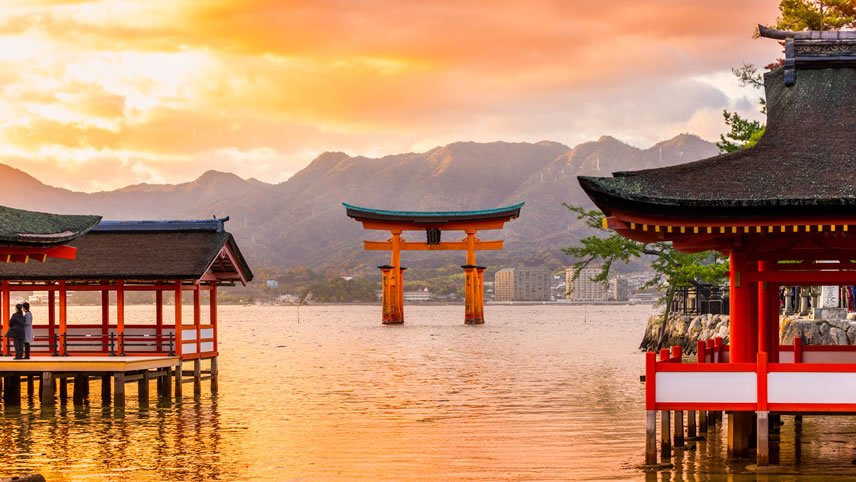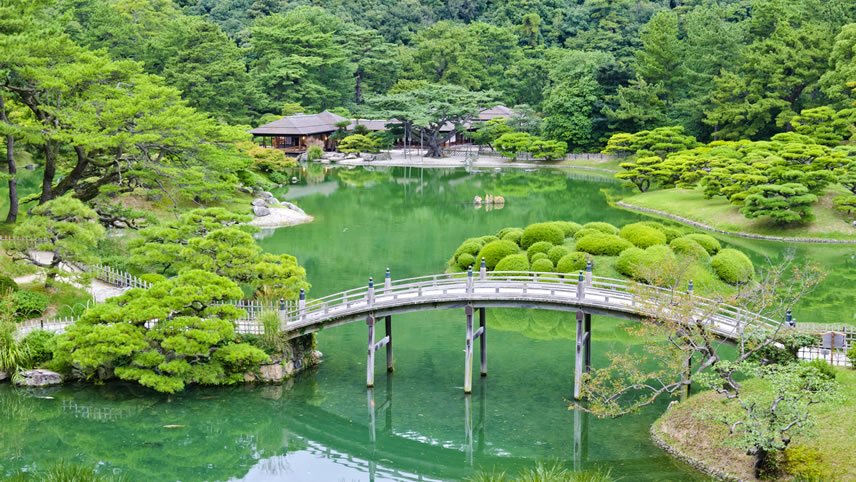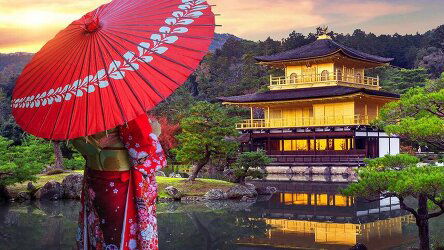Overview
Itinerary
Be met at the airport before being transferred to your premium expedition ship, Heritage Adventurer, your home for the next 11 nights. Get to know your fellow travellers at a relaxed dinner on board this evening. Stay 11 Nights: Heritage Adventurer (D)
Your journey begins as you depart from the pier, embarking on a scenic drive to the Kinashi Bonsai Farm. Explore the artistry of bonsai cultivation, witnessing the meticulous care and craftsmanship that go into creating these miniature masterpieces. The Kinashi Bonsai Farm stands as a testament to the region's dedication to preserving this ancient horticultural art.
Continue your journey with a drive to the Ritsurin Garden. Ritsurin Garden is the largest Cultural Property Garden in all of Japan and is an important cultural asset that has been maintained for nearly 400 years. Originally created in the Edo period for the daimyo (feudal lord), the garden features six ponds and thirteen landscaped hills in front of the green vista of Mt. Shiun, along with stunning rock arrangements and a wide variety of beautiful plants. The garden was designed to be leisurely strolled through, and each step offers a new perspective on the garden's scenery. (B/L/D)
Our expedition leads us to the Kurashiki Historical Quarter District, where Edo-era architecture paints a vivid picture of Japan's past. Engage in a traditional tea experience at Shinkei-En, nestled within the Ohara Museum, offering a serene setting to appreciate the nuances of Japanese tea culture. The Ohara Art Museum within this district houses are Japan's first Museum of Western Art. The Museum houses a diverse collection, including works by El Greco, Monet, and Japanese masters.
Conclude our journey with a leisurely stroll through the charming Old Town (Bikan Area) of Kurashiki, characterized by well-preserved Edo-period architecture. As the day ends, embark on a scenic drive back to the port. (B/L/D)
Board your coach and drive towards the poignant Hiroshima Peace Memorial Park. This sacred site stands as a testament to the enduring spirit of resilience and hope, commemorating the victims of the atomic bombing in 1945. The Park is a large green space in the center of Hiroshima — once the thriving political and commercial heart of the city. On August 6th, 1945, the world's first atomic bomb was dropped over the center of Hiroshima City which suffered widespread damage and suffering. Four years later, this area of the city was designated as a memorial zone. (B/L/D)
This morning you may choose to embark on an optional tour (own expense) Yusumizugaura & Pearl Farm Tour. Learn about the pearl farming at the Doi Pearl Farm - the first pearl culturing farm in Ehime.
Following the pearl exploration, drive to Yusumizu-ga-Ura Terrace field, a picturesque coastal area celebrated for its breathtaking views. The area was selected as one of the 100 most beautiful villages in Japan. Indulge in a unique experience by tasting boiled potatoes, a local delicacy that complements the serene ambiance of the terrace. (B/L/D)
This morning, view the area's enchanting nature, beginning with a scenic drive to Yakusugi Land. Embark on a serene walk through the park, surrounded by the towering Yakusugi trees that have stood for thousands of years. Witness the enchanting beauty of this primeval forest, a UNESCO World Heritage site.
Next, you will drive to Yakusugi Museum. As you enter the museum you will notice the entrance hall made of Yakusugi and the aroma coming from it. Main exhibition hall displays information about natural history of Yakushima. Here you can learn about the Yakushima cedar trees, the products that come from them and how they were harvested. (B/L/D)
Today, begin your day with a drive to the Atomic Bomb Museum, a reflection on the impact of the events of 1945. Explore the museum, gaining insights into the impact of the atomic bomb on Nagasaki and the sequent efforts towards peace. Take a reflective walk to Peace Memorial Park, tracing the path through the Hypocentre, where the atomic bomb detonated 500 meters above Nagasaki at 11:02am on August 9th, 1945. In the tranquil surroundings of Peace Memorial Park, pay homage to the victims and explore the symbolic monuments dedicated to peace. (B/L/D)
Your exploration starts with a drive from the port to Hagi Old Town. A UNESCO World Heritage Site, the Hagi Castle Town is an impeccably preserved example of a feudal Japanese town. Walk down the old streets and admire the residences of upper-class samurai, including important historical figures and wealthy merchants. Hagi Castle was built by Terumoto Mori in 1604 and over the next 260 years, Hagi Castle Town prospered as the center of the clan's operations. Unearth Hagi's industrial history at the Hagi Reverberatory Furnace, a legacy of the Meiji (1868-1912) Industrial Revolution.
Continue your exploration in the Samurai Quarter, wandering through the Samurai House and soaking in the historical charm of the area. (B/L/D)
From the port of Ulsan, you may opt to travel to Busan (own expense), known for its laid-back vibe and deep cultural roots. Kick off the tour by paying a visit to the famous Gamcheon Culture Village, a colorful vibrant community of Lego-looking houses, followed by a trip to Jagalchi Market, a representation of seafood in Busan. Then, head over to Yongdusan Park to explore a mountain shaped like the head of a dragon, rumoured to have defended Busan from oncoming enemies. Learn about Busan's history by visiting shrines and monuments on the mountain. (B/L/D)
Delve into the history of feudal Japan by visiting one of the 12 original castles, meaning that its main tower has survived to this day through fires, earthquakes and the anti-feudal demolitions of the Meiji Period. Constructed over a period of 5 years from 1607 to 1611 by Yoshiharu Horio, a feudal lord and founder of Matsue. Matsue Castle was completed as a fortress with thick black walls on strong stone walls.
Next will be a short walk to the Matsue History Museum, located east of the castle. Designed to resemble a samurai residence, the museum features an in-depth view of the history and culture of the castle Matsue over its 400-year history. As a museum with national treasures, one of its collections contains the talismans (also designated as a National Treasure), showing the completion year of Matsue Castle's construction. (B/L/D)
Start today with a visit to Omicho Market. Established during the Edo Period, Omicho Market has formed an essential part of Kanazawa's food culture for more than 300 years. Renowned for its fresh seafood and local delicacies, the market showcases the region's rich culinary heritage.
Following this, embark on a scenic drive to Kenroku-en Garden, considered one of Japan's three most beautiful gardens. Originally developed in the 17th century, the garden boasts a harmonious blend of landscapes, including ponds, bridges, and teahouses. Adjacent to the garden stands Kanazawa Castle, a historic fortress with origins dating back to the Maeda clan in the late 16th century. A symbol of power and resilience, the castle offers a glimpse into Japan's feudal past.
Next, venture into the Nagamachi Samurai District. This area preserves the atmosphere of a traditional samurai neighbourhoods, with well-preserved residences and narrow lanes. (B/L/D)
Bid farewell to the ship as we commence the next leg of your adventure. Begin with a smooth transfer to Kanazawa Station, where the vibrant energy of the city awaits. The journey unfolds with a leisurely walk to the platform, allowing you to soak in the bustling atmosphere.
Next, embark on a thrilling experience as you board the iconic bullet train from Kanazawa to Tokyo. En route, savor a delectable lunch box, showcasing the culinary delights of the region. The high-speed journey provides breathtaking views of the Japanese landscape. Upon arrival in Tokyo, you will be transferred to the airport or your Tokyo hotel. (B/L)
Life Onboard Heritage Adventurer
Availability Click on prices below to view cabin upgrades and details
Tour & cruises prices are per person. Prices shown have savings applied, are subject to availability and may be withdrawn at any time without notice. Pricing and trip details are correct at this point in time, however are subject to confirmation at the time of booking and are subject to change by Travelmarvel. For cruise itineraries, cabin images are sourced from Travelmarvel. These should be treated as indicative only. Cabin inclusions, upholsteries and room layout may differ to the image(s) shown depending on the ship selected and your sailing dates.
Similar Cruises
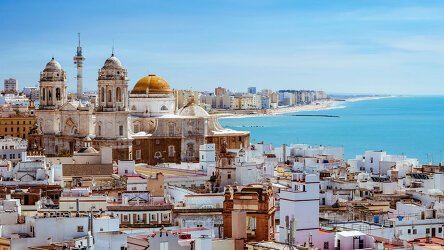
12 Days Porto Barcelona
Operated By: Travelmarvel

13 Days Delhi Delhi
Operated By: Travelmarvel
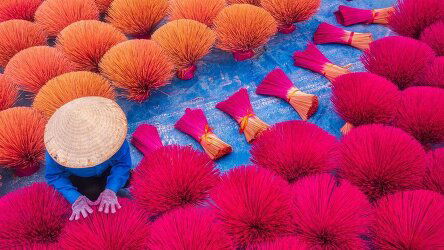
12 Days Siem Reap Ho Chi Minh City
Operated By: Travelmarvel
